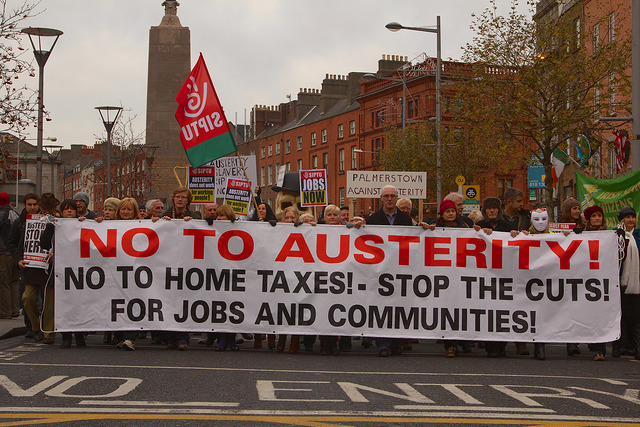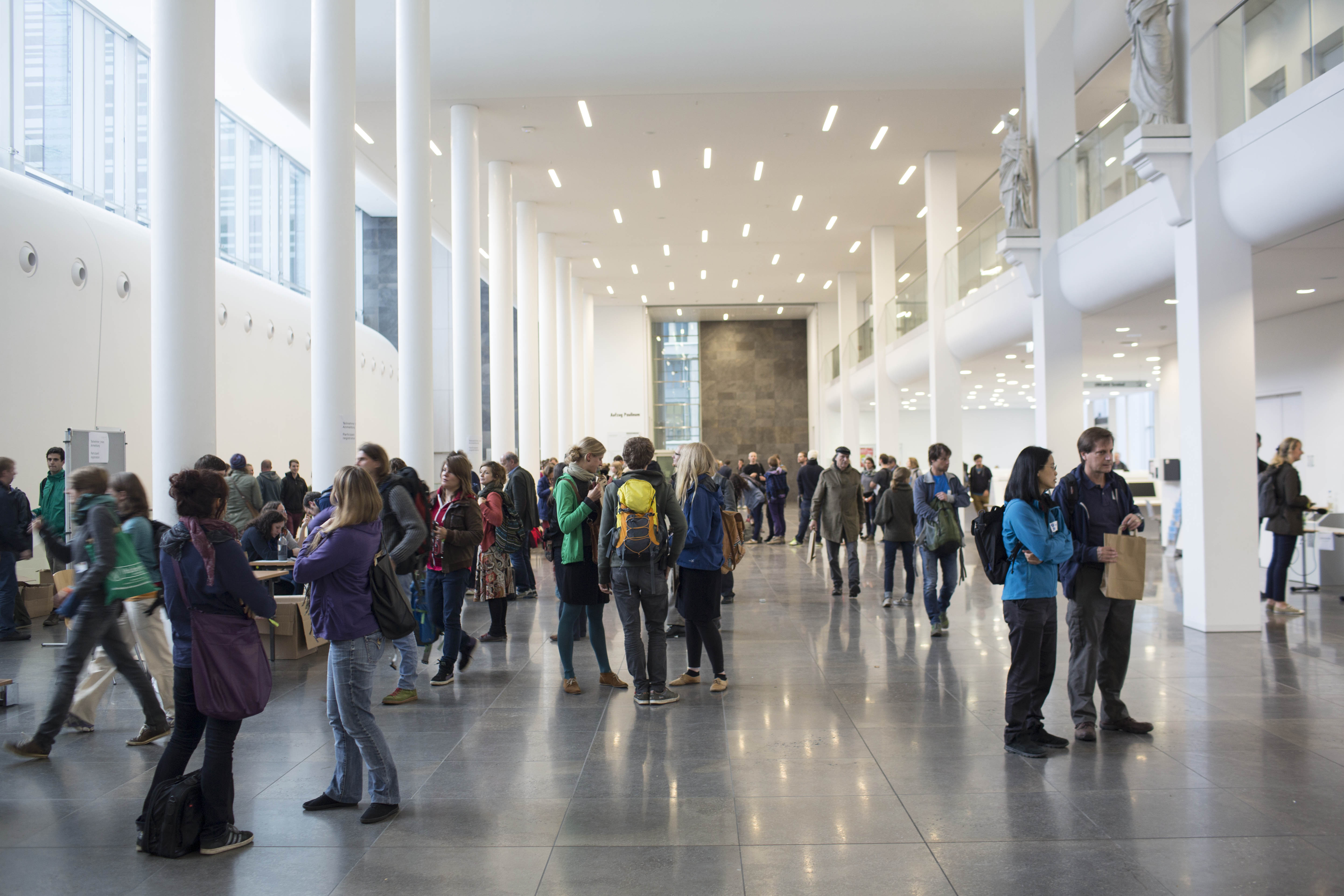Given the strategic indeterminacy of the degrowth movement that has been discussed in earlier articles within this series, we will consider the role that policy may play within the broader scope of a degrowth transformation and as one important focus within a plurality of movements. Specifically, working to move the focus of policy towards instruments that shift the rules of the competitive environment towards a more inclusive and sustainable mode of production, and away from an assumed need for economic growth, may be a significant point of leverage toward a degrowth transition. We are focusing on policy because a macroeconomic policy agenda for a post-growth economy, which is concrete and widely endorsed by the community, is a crucial foundation for achieving real change. In line that goal, a workshop around the creation of a post-growth macroeconomic policy agenda will be held at the ESEE (European Society for Ecological Economics) conference in Turku, Finland on June 20th, 2019. The session, entitled ‘Paving the way for post-growth policymaking’, is initiated by researchers within the Post-Growth Economics Network, co-hosted by an organizer for the Vienna Degrowth 2020 Conference and draws on ongoing policy work done by the ZOE Institute. Some motivation and context for the workshops follows. In academia, many have called to move policy making beyond growth and instead align economic development on a degrowth, a-growth or post-growth paradigm. From a strategic point of view, many degrowth proponents argue for bottom-up approaches (see here and here), even if the policy proposals require top-down governmental interventions.While bottom-up may serve as one important strategy, it is not sufficient to achieve a system level change. Institutional change always happens as an interplay of various stakeholders and on different governance levels. Scaling up new modes of production and consumption and reshaping the mechanisms of wealth distribution will require an adjustment of the market rules in the sense of new regulation but represents a break with the very fundamentals of the current economic system. Acknowledging both the importance of macro(economic) changes as well as the deep interconnections of the political and the economic, the question must be asked which role policy-making can fulfil in the wider transformation of the economy and society. Today, the top priority for economic policy in the European Union still lies in “jobs, growth and investment”, achieved by boosting investment through quantitative easing and regaining trust of the financial markets by reducing the government debt-to GDP ratio, i.e. austerity politics. In contrast, ecological macroeconomists are developing new theories and models to explore how we can create a stable, equitable macroeconomy that fosters well-being (Rezai & Stagl 2016). However, what is lacking is an associated macroeconomic policy agenda informed by these insights, with clear policy instruments, that could form the basis for a transition to a sustainable and prosperous post-growth economy. Through this workshop we aim to address this deficit and to initiate a practical co-creation process, drawing on academics as well as activist and those living and working in post-growth systems, of a core policy agenda for a post-growth macroeconomics. Such and agenda would help to deal with current challenges by structuring existing policy proposals, understanding links between policy instruments, intervention channels and objectives and thereby helping to identify possible trade-offs, conflicts and synergies between policy proposals and derive research gaps. It would also help identify what can be called 'non-reformist reforms', i.e. interventions that can reasonably be argued for in the here-and-now but have the potential to bring about deeper change in the longer term. When it comes to the practical design and implementation of policies to move beyond growth, numerous challenges exist, such as interconnectedness, multi-level governance, difficulty to gather political support, coherence and concretion. Under the broader goals of, for example, an economy that works within planetary boundaries and ensures high levels of subjective well-being, the workings and relationships between finer and more concrete levels must be understood. Often policy instruments are confused with policy objectives or intervention channels. For example, “working time reduction” may be a channel to achieve the objective of ensuring a sufficient amount of employment. However, the instruments connected to this channel are for example tax incentives for part-time jobs, information campaigns on job sharing and regulation of working hours. Similarly, the channel of “reducing pollution” may be necessary to achieve the objective of ensuring a resilient ecosystem, in which case strengthening pollution abatement standards could be a policy instrument to achieve this. The distinction between objectives, channels and instruments helps identify where new instruments still have to be developed and understanding these distinctions is important for the creation of an effective degrowth policy agenda. We realize that this session can only be a very first step in the development of a macroeconomic policy agenda that is widely accepted in the academic community and beyond. Our session will produce both some immediate outputs but also lays the foundations for a continuation beyond the conference. Thus, an important part for this process lies in connecting it with other stakeholder-oriented, ongoing processes like the Degrowth Conferences in Vienna and Manchester in 2020, the Postgrowth-Conference in Brussels, campaigns of NGOs and the Post-Growth Economics Network. It is important that the continuation of the process will engage non-academic organizations which are championing social change for a sustainable economy. We intend to present the output of the conference here on degrowth.info, and, additionally, to build upon that output concretely with in-line sessions at the Vienna and Manchester Degrowth conferences taking place in 2020.

When hitch-hiking, a certain irony is common: Time and time again, the authors' of this post have been picked up by drivers who immediately instruct them that hitch-hiking used to work, but now is impossible. That these conversations were taking place at all would appear to contradict this supposed fact. This is not to say that it is always easy. Roads bar access to their sides for pedestrians ...

How the conflation with neoliberalism and austerity unfairly reduces the idea of degrowth to absurdity – and where the degrowth movement can turn for answers to the crisis. The degrowth movement has been developed in response to neoliberal reality, neoliberalism's comically reductive view of human nature, its ecological blindness and the rise in social inequality it has brought about. Austerit...

By Christiane Kliemann When listening to all the keynotes, panels and sessions, or simply joining the lively discussions between conference participants, there is the notion of an overall agreement that a broader new vision for society and the economy is most urgently needed. However, the elephant in the room is that such vision is almost impossible to shape, if it is to represent the diversi...